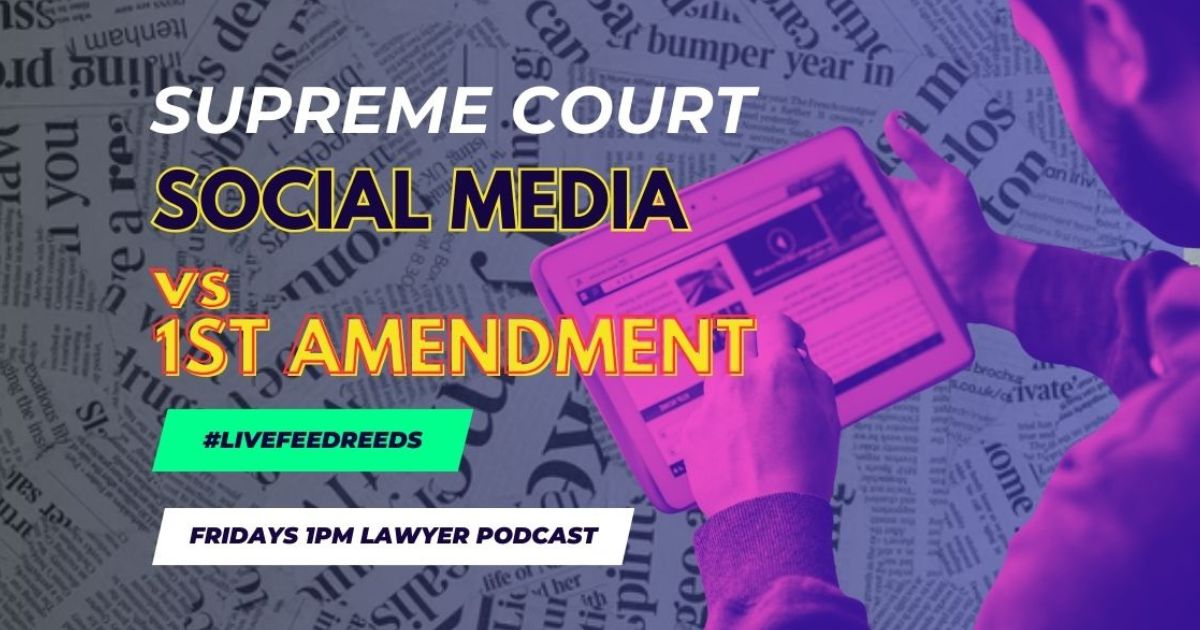Texas and Florida passed laws that try to mandate what social media platforms can and cannot do regarding the content people post. Whether you are conservative or liberal, you most likely think social media censors you. That issue is at the heart of this Supreme Court case.
Texas and Florida Law
These two states passed similar laws regarding social media censorship and content moderation. Texas passed a law that basically said social media can’t censor content. This was deemed constitutional by the Texas District Court, which was then appealed to the Supreme Court.
Florida’s law was similar in that the state passed a law that said either side had to have equal time, or exposure. In other words, social media platforms can’t “give more time” to one side or the other. This case was deemed unconstitutional by the Florida District Court and also appealed to the Supreme Court.
The Supreme Court heard both cases and basically punted it back to the lower court. They did, however, establish that social media “entities” can mostly control what goes on their sites.
Listen to Paul and Jason discuss this case on the LiveFeedReed podcast

The Supreme Court Ruling on Laws Regarding Social Media Content and the First Amendment
It boils down to one factor: The Supreme Court stated that since social media entities are private companies, the federal government can’t control what they put on or allow on their sites to a certain degree.
When sending the cases back to the Texas and Florida lower courts, the Supreme Court also gave a partial ruling of three principles:
- The First Amendment applies to any government mandate. The government can’t tell any private entity what to print.
- The First Amendment applies even if the entity isn’t choosy about what it prints, even if the entity excludes most of what they don’t like.
- The government can’t regulate speech, even if the speech claims to seek a balance of viewpoints for diversity.
During the video, Paul remembered two Tampa Bay area newspapers from years ago, The Tampa Tribune and the St. Petersburg Times. The Tampa Tribune was more conservative, while the St. Petersburg Times was more liberal. They could each print the stories they wanted – and could even print those stories with their own views.
You might read a story about the same subject, but both papers would have their own spin on it since people with different political views wrote those stories. The Supreme Court is “hinting” at the same type of scenario – social media platforms can, within reason, print what they want – which means they can also censor what they want.
But… The Cases Were Remanded to the Lower Court
The Supreme Court sent the cases back as their “ruling” was only guidance to how the lower courts should proceed. If they find that their decision meets the Supreme Court’s principles and fall within the constitution, the cases could stand.
However, rehearing the issue and going through the appellate process is expensive. Thus, neither Texas nor Florida has made a decision on their respective cases and other states will probably be discouraged from bringing their own.
While other states also have similar issues, they are most likely going to wait to see how these cases play out.
